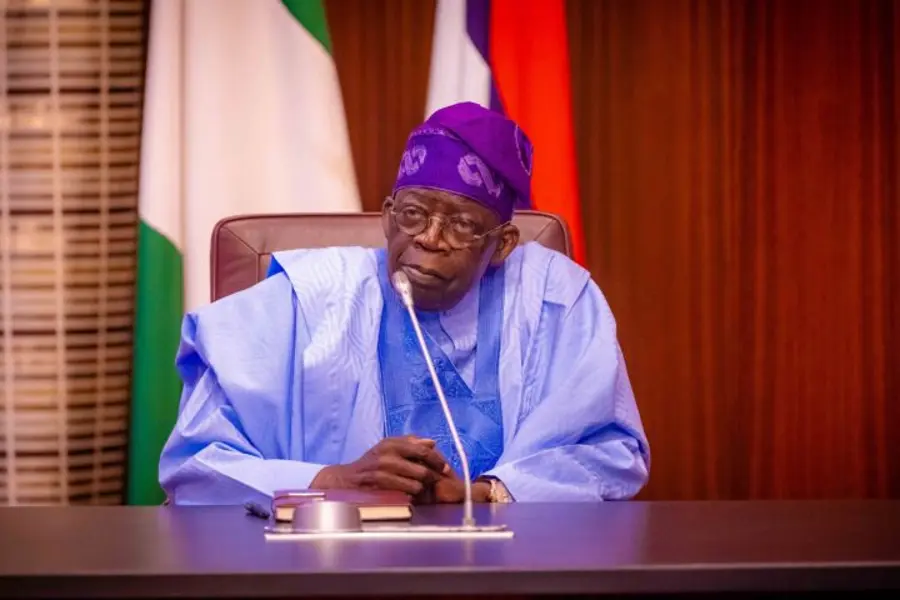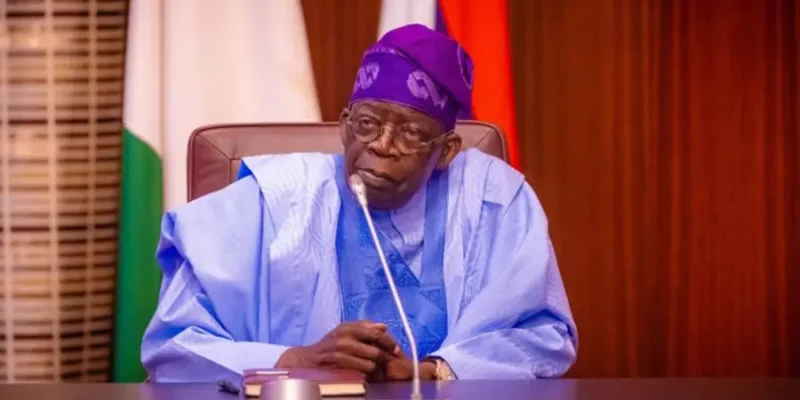
In his maiden presidential media chat, President Bola Tinubu addressed a variety of pressing national issues, reaffirming his commitment to tax reforms and the removal of the controversial fuel subsidy, while also sharing insights into his administration’s long-term goals for Nigeria’s economic and social development.
Tinubu emphasized that tax reforms, though controversial, are here to stay, acknowledging the ongoing debates and negotiations but stressing the need for economic restructuring. “Tax matters are subject to debates, reviews, and negotiations until you reach concessions,” he stated, adding that Nigeria’s economic challenges require new approaches. He expressed confidence in his ability to lead the country toward a better future, despite acknowledging the difficulties Nigerians face.
On the issue of the fuel subsidy, which has sparked widespread debate, the President made it clear that he had no regrets about its removal. He described the subsidy as unsustainable, stating that Nigeria could no longer afford to spend its future on what he described as a “broken boat.” Tinubu further criticized the practice of giving out fuel to neighboring countries, calling it financially irresponsible and detrimental to Nigeria’s long-term prospects.
Addressing concerns about his cabinet, Tinubu defended the size of his government, asserting that he had appointed ministers based on their abilities to fulfill the demands of their roles. “Nigeria is a large country, and we need efficient and effective stewards to manage the affairs of over 200 million people,” he explained. The President made it clear that he would not reduce the cabinet size, citing the importance of efficiency in governance.
In a somber moment, Tinubu also spoke about the recent stampedes in Oyo, Anambra, and the FCT, expressing condolences to the families of those who lost loved ones. He pointed out the lack of organization during such events and called for greater discipline and planning in the distribution of aid, drawing from his own experience of giving back to the community for over two decades.
Discussing Nigeria’s economic management, Tinubu acknowledged the country’s infrastructure deficit, noting that borrowing was a necessary tool for addressing the country’s pressing needs. However, he stressed the importance of managing resources prudently to avoid financial disaster and ensure a prosperous future for Nigeria.
On security, the President expressed confidence in the country’s security architecture, stating that he would not be removing his service chiefs. He highlighted improvements in security, particularly in previously volatile regions such as Kaduna, Borno, and Zamfara, which are now safer for travel. He emphasized the need for continued investment in technology, training, and resources to ensure the safety and security of Nigerians.
Lastly, Tinubu addressed Nigeria’s economic trajectory, stating that the country had moved beyond the era of “Ways and Means” financing, thanks to increased revenue generation. While acknowledging the long road ahead, he expressed optimism about Nigeria’s progress and reaffirmed his commitment to creating a prosperous future for the nation.

Comments